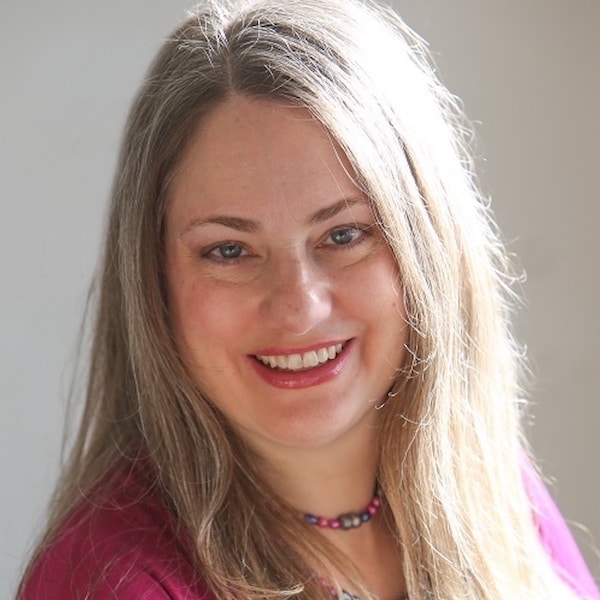Once upon a time, in the long ago and far away, when gods and goddesses walked the earth among humans and when human beings aspired to godhood, there lived a centaur named Chiron.
A centaur, as you may know, looks like a man from the waist up and a horse from the neck down. There was, at this time, a whole race of centaurs, but Chiron was not really one of them, for he came to be a centaur in a different way. He was the product of a rape. Before Chiron was born, his mother, the nymph Philyra, attracted the attentions of Chronos (or Saturn). Chronos was accustomed to taking whatever—and whomever—he wanted, and so he pursued her relentlessly. She cleverly turned herself into a horse and sped away, but he turned himself into a horse also and caught her. Chiron was the product of their unwilling union. Think about that for a moment. His mother abandoned him at birth without a second thought. His father he never knew at all.
Chiron was always an uneasy union of opposites. The way he came into existence was an example of that, along with the fact that he was, himself, half-god and half-beast. A third example is in his attempts to negotiate treaties between the unruly centaurs (representing Freud’s unconscious or “id”) and their neighbors, the Lapiths (representing Freud’s repressive superego), even though neither fully accepted him as one of their own. Chiron’s dualistic nature drove him to seek his own wholeness. He was driven by a need to put the warring parts of himself together, so he could become one person.
Chiron in all his duality symbolizes an essential human problem: a human being is a spirit in a body. A human being is a bundle of instinctual needs and unconscious drives and yet “in aspect, how like a god” are we. Has it ever occurred to you how funny it is that, when we are pointing out someone’s flaws, we say “He’s only human,” and yet, when we see an animal behaving in a way that seems beyond its capability, we say, “it’s almost human.” It’s almost as if humanity itself is an odd blend of bestial and divine. Chiron is this puzzle of being human.
Chiron formed a strong friendship with Hercules, the mightiest of heroes. They fought in battle together, side by side, on many an occasion. In one battle, amidst the confusion, a poisoned arrow shot by Hercules injured Chiron’s leg, causing what should have been a mortal wound. But Chiron, being immortal, could not die. So the animal part of him had to suffer while the divine part maintained his connection to life. Perhaps it was for this reason that Chiron became a renowned healer. He studied herb lore and healing ways and became a medicine man in search of a cure. He never found one, but he found something better—a way to transcend his suffering and to become truly whole.
During this period, Prometheus was being punished. He was one of the Titans, the gods before the gods we know best (Jupiter, Mars, Venus and the crew). Prometheus thought Man was a pretty good invention, the best and brightest of the earth-dwelling mortal creatures. He believed human beings should have fire, so he stole some from Mt. Olympus (home of the gods) and gave it to humanity. For this, he received an extremely harsh punishment. He was chained to a rock in the underworld and each day a huge eagle (or in some stories a griffin) came and ate his liver from his still-living body. Each night it grew back. Before leaving him there to endure this daily torment for all eternity, Jupiter (aka Zeus) declared that whoever of all the gods wished to, might relieve Prometheus of his torment if that god was willing to take his place for just one night. After that night, the rescuer would die and become a ghost in the underworld, as if he were mortal. No one agreed to—and why would they? They were gods. They had immortality and a luxurious existence. Why would they give that up?
Chiron heard this and thought to himself, “I am already suffering on a daily basis and there is no value to my suffering. If I took on the suffering of Prometheus, at least he would be freed.” Chiron did so—he took Prometheus’ place on the rock and endured the torment of the giant bird. Jupiter was so impressed with this behavior that he did more than make good his promise to free Prometheus. He liberated Chiron from not only the rock, but also the torment of his own wounded body, and placed him among the stars as the constellation Sagittarius.
Now I want to point some very important things out here. Chiron’s decision to heal Prometheus by taking on his pain was exactly the thing that liberated Chiron himself. It was a truly selfless act. It also illustrates a healing principle of homeopathy: “in the poison is the cure.” Which means that a very small amount of the very thing that hurt you will cause your body to cough up and expel, in a healing reaction, the original damaging agent. It is also the reason why people drink in the morning to cure a hangover, calling it “the hair of the dog that bit you.” And this principle is related to inoculation, in the idea that a small amount of a disease, when introduced into the system of an otherwise healthy person, will cause that person to create antibodies which stand ready to fight the disease if it appears in force later in life. Whether preventative or curative, all these principles suggest that small amounts of poison effect cure.
Chiron’s story is both beautiful and profound but for Chironic types (people with Chiron placed strongly in their chart) it is more than this: it is a life-path with deep, rich meaning. To be on the path of the healer is a gift which hurts at first, but leaves one with a wholeness, a sense of being knitted together and of having access to all of oneself that would not be possible if the wound had not been there in the first place.
The key to this is to spend as little time as possible in the victim role, and to, as quickly as possible, move on to the role of survivor and ultimately to become a thriver. If you’re a Chironic type, you cannot afford to get self-indulgent anywhere on the path, because you will get stuck there. Acknowledge that the pain is life’s gift, driving you onward toward healing and wholeness—for yourself and the many others lucky enough to cross your path.
Chiron is a part of all of us. All of us have a primal wound, a wound that feels like it will never heal. Our human tendency is to think that we are special in our woundedness (“You don’t know how it feels to be me” was how Tom Petty put it) but that attitude is the very thing that forms the greatest obstacle to our healing. In order to heal and truly move on to surviving and thriving, we must let go of the glamour of victimhood.
Chiron is split; he is both wounded and divine. Chiron in your astrology chart shows a place where you came into this life ready to be wounded. It also shows a place where you have a capacity to be divine, extraordinary, special. Heal the wound and you are left with the divinity. How do you heal the wound? Three ways: First, accept and bring yourself to love the broken or split off side of yourself. Second, let go of attachment to being special in your brokenness, a victim of your fate. And finally, heal others who are like you because this will bring out and exercise your divine ability. You don’t have to do these in any particular order—life will send you random opportunities to do all three.
Chiron’s gift is great, but unattractive. Can you accept it and make something of it? If you can, you will release the pain of being human and take your rightful place among the stars as a constellation.
If you’ve never heard of a planet called Chiron and you’re wondering where it is in our solar system, Chiron, What The Heck Is That? will answer your questions. That post also has more about Chiron’s 50-year cycle, which leads to a powerful life transition we all experience when we turn 50. If you’re near 50, you definitely need to check it out.
Read about what Chiron is up to this year: This Year’s Stations of Chiron.


